Introduction:
Elaine Blaxter: University Librarian & Head of Library Services, University of Strathclyde
Contact: e.a.blaxter@strath.ac.uk
Q: What is the status of your implementation?
We purchased Leganto in March 2019 and went live at the end of May. Academic year 2019/20 sees Strathclyde launch Leganto software to our user community.
Q: What is the major benefit you hope to see as a result of your institution’s use of Leganto?
We hope that launching Leganto will see academic staff creating dynamic, structured and annotated reading lists to support teaching across the university. In addition, the software will provide real-time analytical data about how students are engaging with learning resources. From a student perspective we hope that the introduction of Leganto will facilitate access to reading materials regardless of format. In the background, the launch of Leganto brings opportunities to review workflows within the library to ensure seamless and timely delivery of content.
Q: What do you see as the major challenge you’ll encounter in getting your community of users to use Leganto?
We will need to ensure that academic staff are aware of Leganto and the benefits which it brings. As a large institution we will need to ensure that the new reading list service is marketed appropriately to a wide range of staff.
Q: How do you plan to overcome these challenges?
We shall raise awareness of the new Leganto service during meetings with academic colleagues across the university. We will also offer weekly training sessions and drop in support appointments for staff who wish to create their reading lists using the software. These training sessions are supplemented with a detailed step-by-step user manual for Leganto which is available on our library website : http://guides.lib.strath.ac.uk/readinglists/handbook
Q: How will you measure success?
Leganto’s analytics will help us to measure the use of resources contained on reading lists. We will also note the number of academic staff who have created a reading list using the Leganto software.
Library staff will monitor feedback from students about the new reading list software. We will gather this feedback informally at our enquiry desks, via quick polls in the Library and via our biennial IT and Library satisfaction survey.
In early 2020 we anticipate involving two placement students from the university’s Library and Information Studies postgraduate programme in the planning and facilitation of focus groups relating to our reading list software. Feedback from these focus groups will inform the future design and promotion of the software within the university.
Q: How can the user group best be of help to you?
By sharing experiences and best practice among other libraries using Leganto software. We also hope to attend the UK Leganto Days User Group meetings to exchange ideas with other libraries.
Q: How do you see Leganto contributing to the positioning of your library within your University?
Leganto provides us with an opportunity to strength our partnerships with academic colleagues across the faculties. It will allow clearer links to be made visible between our electronic resources and our student and staff community.
